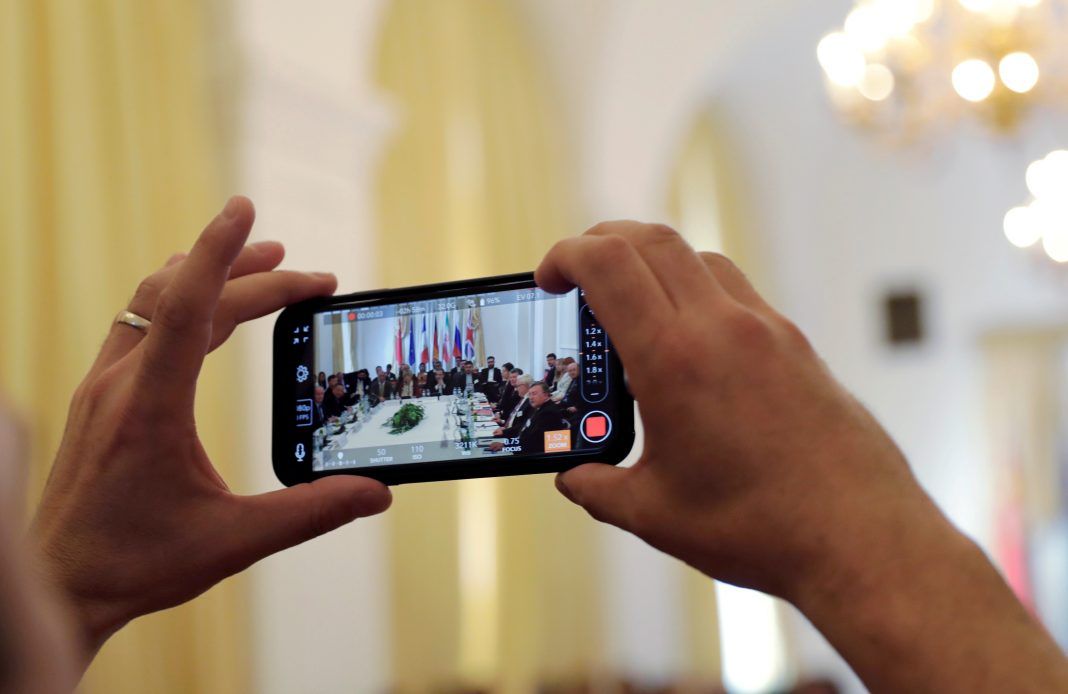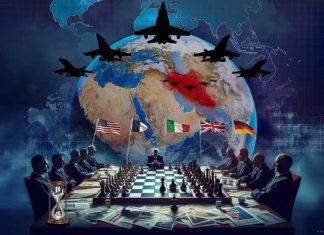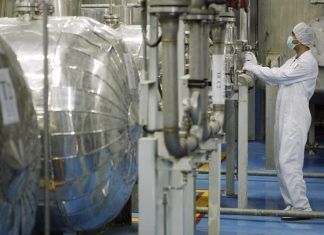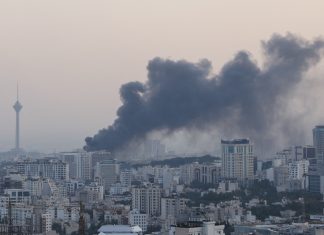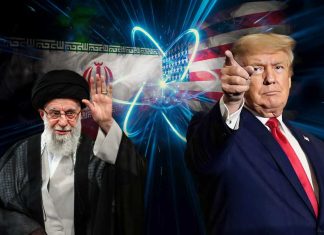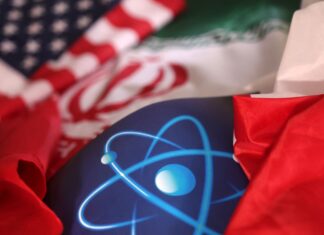By Ahmad Rafat
The fifth round of talks on the U.S. rejoining the 2015 Joint Comprehensive Plan of Action (JCPOA), better known as the Iran nuclear deal, concluded in Vienna, Austria, without producing concrete results.
The negotiating teams from Iran, China, Russia, Britain, Germany, and France (the original signatories to the JCPOA) returned home. The U.S. delegation, which took part in the talks indirectly from a conference room in their hotel a few hundred meters from where others met, also returned home.
The delegations will return to Vienna for further talks after consulting the leaders in their respective countries.
Abbas Araghchi, Iran’s chief negotiator, spoke of the “hard decisions” the U.S. and European countries must make. Mr. Araghchi added that those decisions are made in the “capitals” and not by the “delegations in Vienna.”
The European Envoy coordinating the Vienna talks, Enrique Mora, was overly optimistic about the next round of negotiations, believing that the U.S. will rejoin the nuclear deal and Iran will come back in compliance with the articles of the JCPOA.
“I am sure that the next round will be the one in which we will finally get a deal,” Reuters news agency quoted Mr. Mora as saying on June 3.
While Iranian President Hassan Rouhani echoed the same optimistic sentiments, most delegates in the Vienna talks were not as upbeat in their assessment.
Although Mr. Rouhani asserted that “principal issues with the U.S. had been resolved in Vienna,” U.S. Secretary of State Anthony Blinken said if that was true, then there would be no need for further discussions.
Delegations from the three European countries in the Vienna talks have been much more cautious in their assessments and have openly expressed their concerns over the possible failure of the negotiations.
“Vienna talks have reached a deadlock,” an aide to Enrique Mora told Kayhan Life. “The problem must be resolved simultaneously in Tehran and Washington; otherwise, they must reach some kind of agreement.”
“If both countries, meaning Iran and the U.S., do not back down, then one must give in to the other’s demands, which is extremely unlikely at the moment,” the diplomat added.
Issues that have caused a deadlock in the fifth round of Vienna talks can go one of two ways: both sides can back down from their positions, or they can reassess all their decisions since 2018 when former U.S. President Donald Trump withdrew from the nuclear deal unilaterally.
Iran demands that all or most sanctions reimposed on the country after the U.S. left the deal be lifted before it comes back into compliance with the articles of the JCPOA. President Joe Biden insists that Iran must shut down all its advanced centrifuges, ship the stockpile of its enriched uranium abroad and halt its uranium enrichment program before the U.S. would lift some of the current 1,600 sanctions on the country.
“Ultimately, they could agree on this issue,” the aide to Enrique Mora said. “Both countries must act in unison. The most problematic issue is the crucial aspect of the agreement, meaning those sanctions that the U.S. needs to remove and commitments that Iran must make.”
The Biden administration is prepared to lift a significant number of sanctions that were automatically reimposed on Iran after the U.S. withdrew from the deal. However, it cannot lift those sanctions which were imposed on Iran in the last year of Trump’s presidency, which fall under the Countering America’s Adversaries Through Sanctions Act (CAATSA), passed into law by U.S. Congress in 2017 to “counter aggression by the governments of Iran, Russia, and North Korea.” The bill passed the House 419-3 and the Senate 98-2.
The law has made it almost impossible for the Biden administration to remove the IRGC and other institutions under its control, including the Qods Force, from its list of sanctioned organizations as demanded by Iran in the Vienna talks.
In its latest report to the UN, the International Atomic Energy Agency (IAEA) highlighted two issues. The report said that Iran had stockpiled 3,241 kilograms of enriched uranium which is 16 times the 202 kilograms agreed under the 2015 nuclear deal.
Kazem Gharib Abadi, Iran’s envoy to the IAEA, has confirmed the agency’s report, saying that “Iran has acted in line with a bill ratified by the Majlis [Iranian Parliament] on Feb. 23, 2021.”
In the same report, the IAEA chief, Rafael Grossi, has admitted that the agency’s inspectors could only estimate the stockpile of the enriched uranium, given the restrictions placed on them by the Iranian government. Mr. Grossi was also concerned about the “lack of transparency in the information provided by Iran on its peaceful nuclear program.”
Iranian authorities have not responded to the IAEA’s inquiries about the reported suspicious enrichment activities in two secret sites. In the last meeting of the IAEA’s Board of Directors three months ago, the three European signatories to the JCPOA had prepared a draft resolution to condemn Iran for its failure to respond to the IAEA’s inquiries, but they withdrew it at the last minute to avoid any negative effect on the Vienna talks. They could still resubmit the resolution if Iran refuses to cooperate with the agency. If ratified, the resolution could end the Vienna talks because Iran’s nuclear case would be referred to the UN Security Council again.

